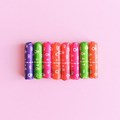The lack of universal access to sanitary products for women in South Africa has made period poverty a major human rights issue in the country.
![Source: © Cora Project https://thecoraproject.org/ Core Project]] In August - Women’s Month - Ackermans worked with the Cora Project to fight period poverty](https://biz-file.com/c/2209/672190-700x364.jpg?1)
Source: © Cora Project https://thecoraproject.org/ Core Project]] In August - Women’s Month - Ackermans worked with the Cora Project to fight period poverty
In addition, the reluctance to talk about it has contributed to making it an ongoing issue.
“In South Africa thousands of girls between the ages of 13-19 years have no regular access to sanitary products and they often miss school 3-5 days each month,” says Merlin Norman, marketing director at Ackermans.
Normalise period talk
In August - Women’s Month - Ackermans worked with the Cora Project, an NGO that works to tackle period poverty and stigma, raise awareness for menstrual rights and normalise period talk.
The Initiative, to gift a sanitary pad to a girl in need for every sanitary pad pack sold in store, led to the store donating over 30,000 sanitary pads to girls, who otherwise would have gone without.
Without access to sanitary pads, these young women are essentially under lockdown simply for being a woman, and each month they miss out on basic human rights such as attending school or moving around freely.
Beyond the physical, the emotional toll of missing out on life as a teenager is devastating with the effects lasting well into adulthood.
With free and ready access to sanitary pads, the girls can rise above the ignorance and ridicule often associated with menstruation and step out of their homes with confidence and peace of mind.
Raise awareness
“We wanted to raise awareness and help fight period poverty in South Africa by launching this Sanitary Pad Drive last year,” says Norman.
“The secondary aim was to remove the stigma and normalise period talk amongst women,” he adds.
“We used our own channels and platforms to drive the campaign (in-store and online via website and social media) using the hashtag #YouBuy1WeGift1.
“We also drove this internally at our head office by placing a donation bin in a café to encourage people to donate with bi-weekly reminders in our Internal Comms,” Norman explains.
“The initiative is aligned to Ackermans as giving back to our community is part of who we are and is a massive part of our CSI programme,” Norman adds.
The Cora Project says that providing menstrual products to those who cannot access or afford them is a necessary step toward addressing the issue. However, to create sustainable interventions, menstrual education is needed throughout the country. This is what it does - it hosts workshops at schools and in communities.








































![Source: © Cora Project https://thecoraproject.org/ Core Project]] In August - Women’s Month - Ackermans worked with the Cora Project to fight period poverty](https://biz-file.com/c/2209/672190-700x364.jpg?1)


